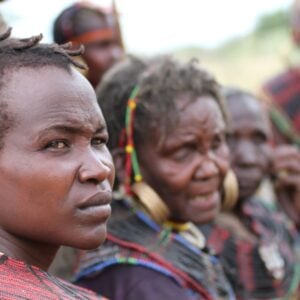For the first time, Ghana has completed a nationwide review of clinical care delivery across its health facilities—an effort set to transform the quality of health services for millions. This landmark Quality of Care (QoC) Review, part of the Harmonized Health Facility Assessment (HHFA), was carried out by the Ministry of Health and Ghana Health Service, with technical support from the World Health Organization (WHO) and funding from the UK’s Foreign, Commonwealth and Development Office.
The assessment covered 1,651 health facilities across all 16 regions, including regional and district hospitals, polyclinics, and more than 60% of health centres. While Ghana has over 10,000 health facilities, with over 7,000 being Community-based Health Planning and Services (CHPS) compounds, the review strategically sampled CHPS facilities to ensure a representative national overview. The assessment focused on six key service areas: antenatal care, tuberculosis, HIV, and malaria treatment for children under five.
To carry out the review, 48 trained assessors—including clinicians, nurses, pharmacists, hospital administrators, and health information officers—visited facilities and examined patient records to evaluate real-world adherence to national and international clinical standards. The assessors found health facilities cooperative and welcoming, enabling timely and effective data collection with minimal disruption to services.
Data was collected using tablets equipped with WHO’s digital Census and Survey Processing System (CSPro), enabling real-time synchronization and validation. This digital approach not only improved data accuracy and efficiency but also built national capacity in digital health data management. National and regional workshops were held to validate findings, ensuring reliability and building collective ownership of the results.
The outcomes of the QoC Record Review extend far beyond the data itself. For the first time, Ghana has a nationally validated dataset that clearly shows how care is delivered and where gaps exist. More importantly, the review process has built a skilled national workforce capable of conducting large-scale clinical assessments, managing digital data, and supporting supervision. This sets a new benchmark for health system assessments and strengthens the country’s ability to monitor and improve healthcare quality in the long term.
Looking ahead, the focus will shift from assessment to action. In September 2025, technical teams will analyze the collected data and translate it into actionable insights. A national report, as well as targeted fact sheets and policy briefs, will be released in November 2025. These findings will directly inform health sector reviews, guide policy reforms, and improve service delivery for mothers, children, and entire communities.
WHO Representative to Ghana, Dr. Fiona Braka, praised the initiative, stating it demonstrates what can be achieved through strong national leadership and international collaboration. She emphasized WHO’s ongoing commitment to supporting Ghana in using evidence to improve care quality and health outcomes.
By completing the Quality of Care Record Review, Ghana has positioned itself as a regional leader in evidence-based health system improvement. The tools, data, and expertise developed through this process not only benefit Ghana but also offer valuable lessons for countries across Africa. With committed national leadership, global support, and a dedicated health workforce, Ghana is making bold strides toward ensuring that every citizen receives the high-quality healthcare they deserve.






